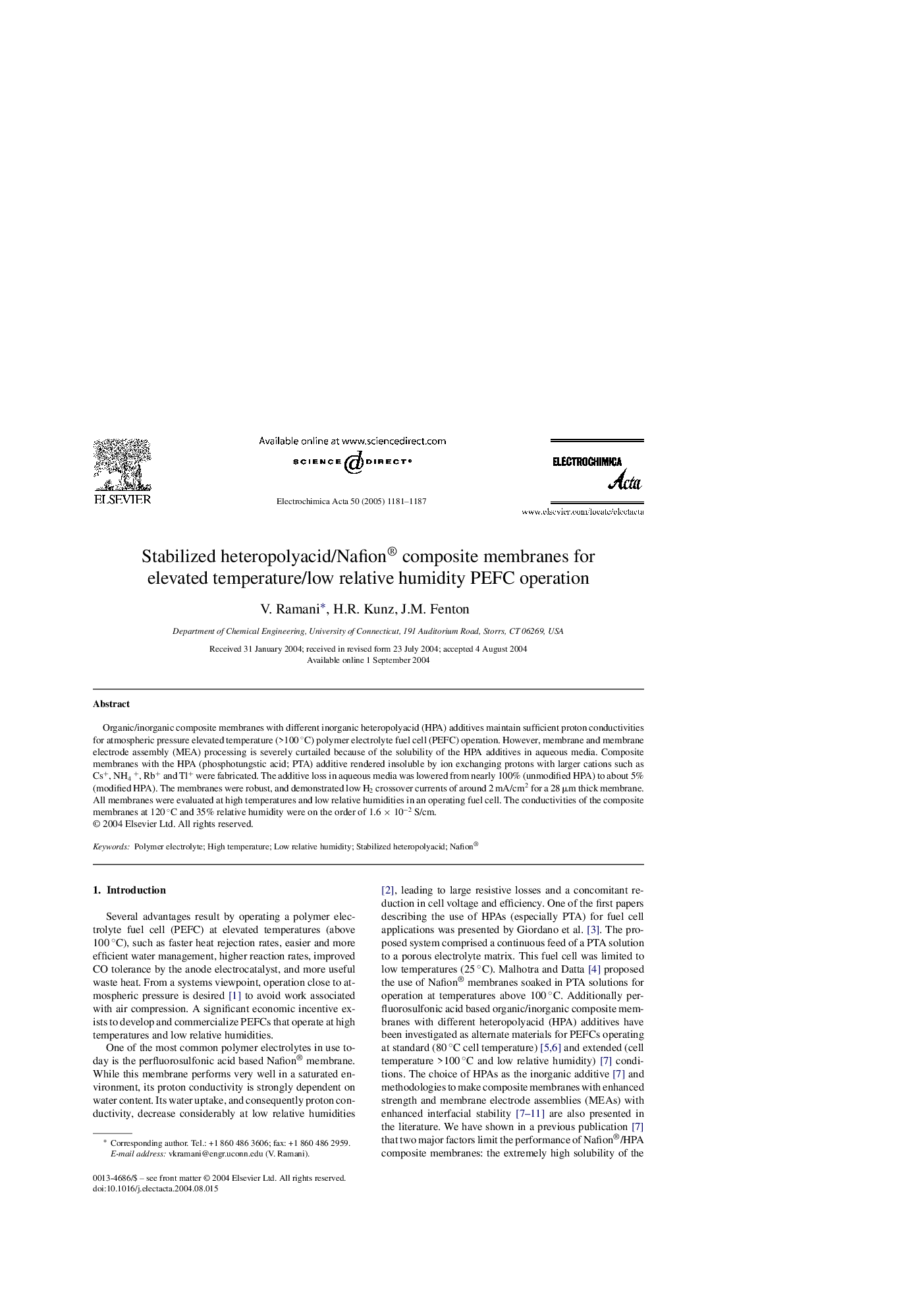| Article ID | Journal | Published Year | Pages | File Type |
|---|---|---|---|---|
| 10269626 | Electrochimica Acta | 2005 | 7 Pages |
Abstract
Organic/inorganic composite membranes with different inorganic heteropolyacid (HPA) additives maintain sufficient proton conductivities for atmospheric pressure elevated temperature (>100 °C) polymer electrolyte fuel cell (PEFC) operation. However, membrane and membrane electrode assembly (MEA) processing is severely curtailed because of the solubility of the HPA additives in aqueous media. Composite membranes with the HPA (phosphotungstic acid; PTA) additive rendered insoluble by ion exchanging protons with larger cations such as Cs+, NH4+, Rb+ and Tl+ were fabricated. The additive loss in aqueous media was lowered from nearly 100% (unmodified HPA) to about 5% (modified HPA). The membranes were robust, and demonstrated low H2 crossover currents of around 2 mA/cm2 for a 28 μm thick membrane. All membranes were evaluated at high temperatures and low relative humidities in an operating fuel cell. The conductivities of the composite membranes at 120 °C and 35% relative humidity were on the order of 1.6 à 10â2 S/cm.
Related Topics
Physical Sciences and Engineering
Chemical Engineering
Chemical Engineering (General)
Authors
V. Ramani, H.R. Kunz, J.M. Fenton,
